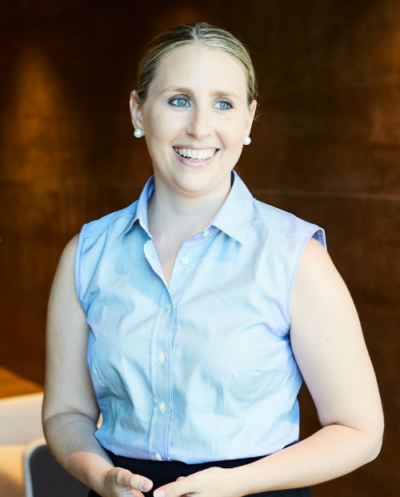Sales basics
Being a not-for-profit group does not mean you can’t make a profit, it simply means you can’t…
Posted on 15 Apr 2020
By Rod and Catherine Brooks, of Wendy Brooks Consulting
When a crisis hits, it's not uncommon for people and organisations to become paralysed by fear and anxiety. But now is the time for considered action.
The two Chinese characters that make up the word "weiji", meaning "crisis", have often been interpreted outside China as meaning "danger" and "opportunity". Even if that translation isn't completely accurate, the term certainly does invoke the idea of a turning point. And there's no doubt that the world is facing a turning point right now. Not-for-profits need to be able to find a way forward to survive, and for almost all of them, that means fundraising. But how do you keep the money coming in when the world has been turned upside down? Here are 10 tips to help.
Carefully review your current funding model and cash-flow projections and carry out a risk assessment to identify where your funding might take a hit, and where you will need extra funding because of the situation at hand. It's only once you have identified risks and gaps that you can consider what you should do next.
You might have found that your existing funding is drying up because it's being diverted to the crisis, or perhaps there is a much greater need (for your clients or within the community) and your projections show that funding will run out at a faster pace than forecast. Now is the time to review your existing services and programs, and your fundraising plan, and to look at how your organisation might best act to deal with the changes.

Do you operate a service or program that could or should be stopped in the current circumstances? Could its funding be diverted to serve the parts of your community that have been hardest hit by the COVID-19 crisis?
What strengths can you leverage, possibly in new ways or using new technology or tools, that might enable you to reach more people, have more impact or meet new needs arising from the crisis?
You don't want to rush into something new, especially if it doesn't build on your existing strengths, but speed matters, and some funders are already looking for ways to support people now and in the short to medium term.
If you do identify opportunities to expand or modify your existing activities, or start new ones, in each case you will need to re-budget accordingly, and note any shortfall in funds.
Now that you’ve assessed your risks, identified the gaps, diverted funds and redone your projections, you can build your business case. You need to demonstrate to funders that you have a sound understanding of your community’s need, and that you have a clear plan to address the need (with the right funds). Use your theory of change, a ‘case for support’, business plans, and a summary of any data you have available to create a sophisticated ‘ask’. Yes, this takes time, but it needn’t be complicated.
If someone was asking you for money, wouldn’t you want to know it was going to be used efficiently and effectively?
Don't abandon or reduce the scope of your fundraising and donor engagement plans – funding is still available. For example, trusts, foundations and private ancillary funds are required by law to distribute funds every year, regardless of pandemics, bushfires, floods and economic volatility. You must not allow your fundraising activities to lose momentum. (Watch Wendy Brooks’ video for more information).
Of course, it's also a time in which your usual supporter base will be under financial and other kinds of pressure. A good understanding of the environment in which you're asking for support will assist in making good decisions.
As a result, you may need to modify what you're asking, who you're asking, and how you engage with prospective donors. But if you're not engaging with existing and new funders, you can pretty much guarantee a decline in revenue!
Speak with your current funders and keep them up to date with how the crisis is affecting your organisation. Thank them for their funding and point out ways in which their money is helping those in need. Once you've got the data we mentioned above, you can talk with them about gaps, your risk assessment, and that business case, and reveal your considered approach for responding in this time of crisis.
If your funders are funding the programs or services that you've had to stop in response to the situation, tell them, explain the need at hand, and discuss when you're going to be able to resume. Consider how all of this is going to affect your acquittal obligations. Think about what help you might need from the funder to allow you to change direction to address the current need.

Reach out to existing funders with your specific request. Make sure you thank them for the funding they have given in the past, identify why you think they might be able to help, and point to any synergies between the need in your community and their giving strategy.
Consider how you might best discuss with them the data you've collated in your business case, your theory of change and your case for support to gauge interest and their immediate ability to give. Don't be scared to be aspirational in your request; funders want to see original ideas, unique opportunities and inspiring organisations. Funders also want to know that their funding could really make a difference, so consider how best to pitch your work in this way.
In times of crisis, funders regularly make public announcements about how they're altering their giving strategy to best meet the needs arising from the crisis. For example, the Paul Ramsay Foundation recently announced that it will be giving $9 million to organisations working to tackle COVID-19.
When these announcements are made, you should consider whether your organisation provides programs or services that fit the funding on offer, then work out the best strategy to build a relationship with the funder and make a request.
When it comes to major gifts, your organisation is much more likely to be successful when your work is already known to the funder or there is an existing personal relationship. Work with your board, with corporate or philanthropic connections, or with businesses such as Wendy Brooks & Partners to tap into existing relationships that will help you attract funding more quickly.
Assess your marketing strategy and consider whether you're communicating in a way that will attract broad support. Consider social media, funding campaign tech platforms and your mailouts as ways of sharing information about the important work you're doing and gaining more funding.
LinkedIn can be an effective way to attract support from the business community. The Our Community GiveNow platform is a great way to get your message out there and source new funds. Lobby government for sector support and help for people in crisis.
Consider how you can collaborate with the community, government and the business sector to best meet the needs triggered by the crisis.
Philanthropists now want to see multiple supporters for projects and programs, and they are more likely to fund an organisation that has support from government, other philanthropists and business. It is also wonderful to see not-for-profits working together in innovative ways, putting competition aside, and focusing on need when shoring up funding.
As we continue to navigate uncharted territories, one thing won't change: the need. This remains and is likely to become even greater.
There has never been a more important time to prioritise your strategic fundraising.
MORE INFO:
Wendy Brooks & Partners hosted the first 2020 Disruptive Ideas Forum online. The topic is on fundraising in a crisis. Check out the video recording by clicking the following link: Disruptive Ideas Forum
The Fundraising Institute Australia (FIA) has produced the below webinar. Managing Fundraising During COVID19 is on what you need to know for fundraising with the impact of COVID-19. FIA have posted a series of conversations and resources on this page.
This page is one of the ways the Our Community Group is working to support not-for-profits through the COVID-19 crisis, as part of a major #SaveOurSector campaign.
You can learn more and find free resources and tools at www.ourcommunity.com.au/saveoursector
Being a not-for-profit group does not mean you can’t make a profit, it simply means you can’t…
Different genders are socially conditioned to occupy different roles. They face different…
Crowdfunding is a great way to get funding for a specific project. It takes energy and creativity,…